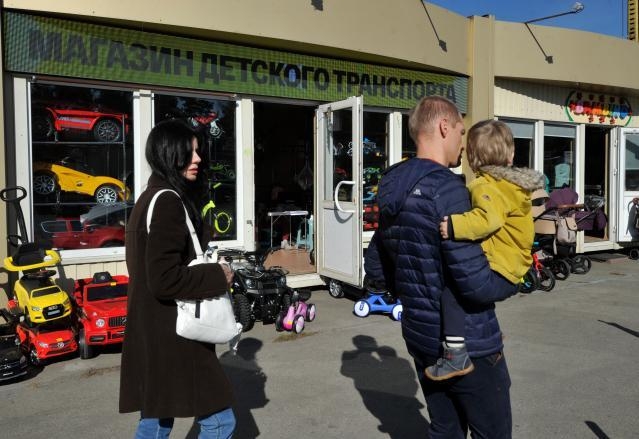In response to the growing number of refugee families fleeing war in Ukraine, UNICEF and the European Association of Service providers for Persons with Disabilities (EASPD) have launched a partnership project, which will create new services for displaced Ukrainian families with young children hosted in Bulgaria, Moldova, Poland, Romania and Slovakia. The partnership will focus on support for young children with developmental risks, delays and difficulties.
Since the outbreak of war in Ukraine, it is estimated that over 2.2 million children have fled the country. It is estimated that around one third are young children, under the age of six. Among the refugee children there is a certain number of children with developmental risks, delays, or difficulties. Many families of children with, or at risk of developmental difficulties are reporting difficulties in accessing support services in all parts of Europe. In many cases, being unable to access support, therapy, or early intervention, as well as experiencing trauma related to displacement, can negatively impact the development and wellbeing of these children.
To address these growing needs and existing service and access gaps, UNICEF and EASPD have partnered to launch new services that will support families with young children with developmental difficulties in the five European host countries. By January 2024, the project will increase the availability of trained Family Consultants who will provide Early Childhood Development (ECD) parental counselling and support to children with developmental difficulties, including delays and disabilities.
Speaking on the launch of the project, Maya Doneva, Secretary General of EASPD said ‘For EASPD, this partnership project represents an opportunity to provide much needed emergency early childhood development support of Ukrainian refugee families. Alongside this emergency response, it also presents an opportunity to bring positive and impactful change to Early Intervention services in Bulgaria, Poland, Slovakia, Romania and Moldova. We look forward to working with UNICEF and our national partners to achieve these goals.’.
Alongside securing the delivery of support services to families and children, the project will also support strengthening of the system for the provision of early childhood intervention (ECI) services in host countries and raise awareness of the importance of early support for developing the potential for every child.
Implemented in Bulgaria, Poland, Slovakia, Romania and Moldova the project will:
Train 500 Family Consultants who are able to work within multidisciplinary teams to provide essential support and early childhood development services to Ukrainian children with, or at risk of, developmental difficulties and their families.
Train 800 parents to facilitate peer support groups for parents who have fled Ukraine or are displaced due to the war.
Provide emergency support to 12,000 families who have been displaced by the war in Ukraine.
Develop and support national partners in each target country, to enable the delivery of ECI and other services to children with or at risk of developmental difficulties, through advocacy and capacity building.
Encourage a greater commitment of policymakers to respond quickly to the critical issues and to support and implement reforms for quality ECI and Early Childhood Education and Care (ECEC) policies across Europe.
UNICEF’s regional advisor for early childhood development, Ivelina Borisova, said ‘Support and access to early childhood intervention services are crucial for every young child with developmental risks, delays, or difficulties. Children who fled war in Ukraine are faced with double risks as their young lives have already been affected by distress and loss. We look forward to building and mobilising all available resources to ensure necessary support for optimal development of young children and their families in the five host countries, together with our EASPD partners.’




